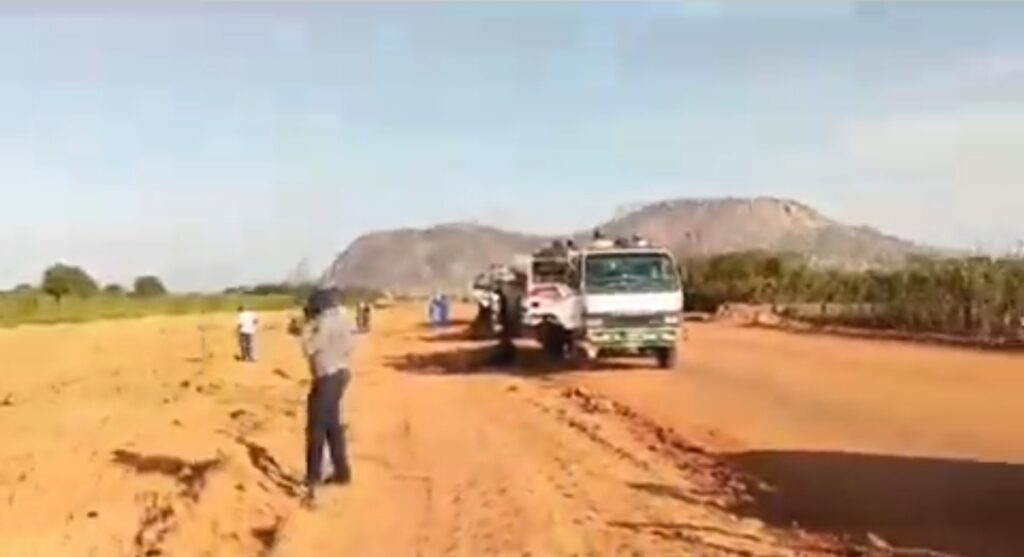
ZAMFARA, Nigeria – Terrorists on Thursday morning blocked the Gusau-Funtua highway in Zamfara State, North-West Nigeria and abducted an unspecified number of travellers on the road, according to local reports.
The terrorists mounted a roadblock along the Tazame axis in Zamfara and rode on motorcycles to stop vehicles from crossing, commuters told local broadcaster Channels Television.
They arrived on 50 motorcycles, each conveying three persons.
“They entered the road around 7 am, and till around 9 am, they were still there. We just parked by the roadside waiting for the military to clear the road, we were seeing the bandits taking people inside the bush,” Yusuf Tsafe, a traveller, narrated.
“The military guntruck moved to the area earlier, we were just hearing gunshots, but they are yet to open the road. Till now, no vehicle has been allowed to pass.”
Yezid Abubakar, the police spokesman for the Zamfara State Police Command, who confirmed the incident, said the command had deployed several personnel to the scene of the attack and he was yet to be briefed on the exact number of the people kidnapped by the terrorists.
“It is true but we are on top of the matter. Our men have been deployed to the place but they are yet to come back so I don’t know the exact figure of the people that were kidnapped. I will get back to you when I get the information,” investigative news outlet SaharaReporters quoted Abubakar as saying.
A viral video seen on X also captured the moment after the terrorists’ attack. Many travellers who survived the attack were seen lamenting the abduction of the victims.
– Insecurity and violence in Nigeria –
For more than a decade, civilians in Nigeria have faced multiple security threats and risk of atrocities as result of attacks, kidnappings and extortion by various non-state armed groups.
Since the start of 2024 civilians have faced intensified violence across Nigeria, and near-daily attacks by armed groups resulting in kidnappings and other abuses against civilians.
Armed groups and gangs, including so-called “bandits,” have – for many years – perpetrated widespread atrocities, including murder, rape, kidnapping, organized cattle-rustling and plunder. Armed herdsmen are also destroying vast swaths of farmland, prompting many farmers to abandon their land out of fear of attack.
In August, the Director General of the World Trade Organisation (WTO), Ngozi Okonjo-Iweala, said insecurity in Nigeria is weaponised by politicians for political and selfish reasons.
A Nigerian soldier, Suleiman S., also alleged that the government’s practice of paying ransoms to terrorists – dubbed as bandits in the country was hindering the military’s ability to effectively combat them.
He urged the public to redirect their blame from the Nigerian Army to the government, emphasising that soldiers are constrained by orders and cannot take independent action.
The soldier said the military has the capability to eradicate bandits, particularly in hotspots like Zamfara State forest within a week if given the necessary orders.
He expressed frustration that the military’s potential is being wasted due to a lack of direction from leadership, whom he accused of profiting from the ongoing crisis.
He cited the assassination of a Sokoto State monarch, Alhaji Isa Muhammad Bawa as an example of a coordinated plan by certain individuals or groups to perpetuate insecurity.
